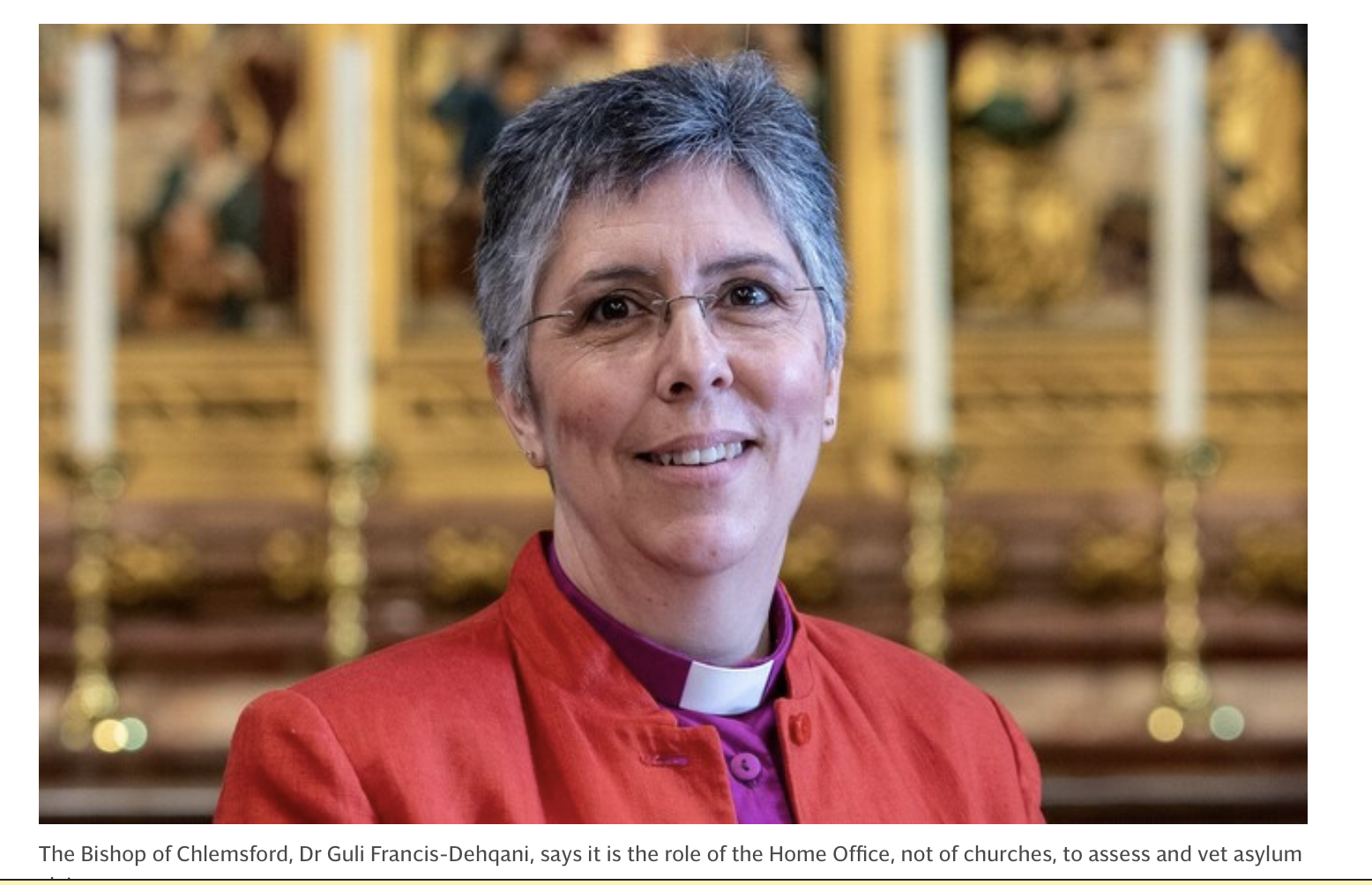It is important to emphasise at the outset that it is the role of the Home Office, not of churches, to assess and vet these claims. I arrived in this country myself as a refugee from Iran, following the events of the Revolution of 1979 during which the small Anglican Community experienced much persecution and my brother was murdered. I know that behind every statistic is a human story and I have a sense of the real trauma that many asylum seekers have experienced. Christians are called to follow the example of Jesus who throughout the Bible focuses his love and care on the most vulnerable and marginalised people in society. Churches do this by helping disadvantaged people of all backgrounds – including asylum seekers – to eat, to sleep, to worship, to find shelter and to be connected to the services which can support them.
As a Christian leader I make no apology for our involvement in supporting people who are often deeply vulnerable and traumatised. But churches have no power to circumvent the Government’s duty to vet and approve applications. It is the calling of clergy to baptise and bring people to God. When a candidate who is an asylum seeker is prepared for baptism, the guidance given to clergy includes the need for discernment: “to be ‘wise as serpents and innocent as doves’. Clergy must be confident that those seeking baptism fully understand what it signifies.” Religious ministers from all denominations will occasionally, after careful assessment, provide statements of support to individuals seeking asylum, but it is wrong to think of this as some sort of magic ticket. The notion that a person may be fast-tracked through the asylum system, aided and abetted by the Church is simply inaccurate. Home Office guidance says “ultimately, evidence even from a senior church member is not determinative”. Responsibility to assess the risk to an individual of persecution on the grounds of faith is that of the Home Office.
Christian leaders have worked with officials to improve understanding of faith-based persecution and Christian identity, and we will continue to do so. We have also offered to work with the Government on ensuring returns policies are developed so that they are safe and more likely to be effective in the long-term. We share the former Home Secretary’s concern about the need to “break criminality”, but those who have claimed a link between the abuse of our asylum system and the action of bishops in Parliament are simply wrong. The plight of refugees the world over is a shared responsibility and one we must shoulder together – locally, nationally, globally. We must do so not by demonising those who arrive on our shores, but by recognising our shared humanity and, as Christians would put it, seeing in others the face of Christ.
Dr Guli Francis-Dehqani is the Bishop of Chelmsford


It is important to emphasise at the outset that it is the role of the Home Office, not of churches, to assess and vet these claims. I arrived in this country myself as a refugee from Iran, following the events of the Revolution of 1979 during which the small Anglican Community experienced much persecution and my brother was murdered. I know that behind every statistic is a human story and I have a sense of the real trauma that many asylum seekers have experienced. Christians are called to follow the example of Jesus who throughout the Bible focuses his love and care on the most vulnerable and marginalised people in society. Churches do this by helping disadvantaged people of all backgrounds – including asylum seekers – to eat, to sleep, to worship, to find shelter and to be connected to the services which can support them.
As a Christian leader I make no apology for our involvement in supporting people who are often deeply vulnerable and traumatised. But churches have no power to circumvent the Government’s duty to vet and approve applications. It is the calling of clergy to baptise and bring people to God. When a candidate who is an asylum seeker is prepared for baptism, the guidance given to clergy includes the need for discernment: “to be ‘wise as serpents and innocent as doves’. Clergy must be confident that those seeking baptism fully understand what it signifies.” Religious ministers from all denominations will occasionally, after careful assessment, provide statements of support to individuals seeking asylum, but it is wrong to think of this as some sort of magic ticket. The notion that a person may be fast-tracked through the asylum system, aided and abetted by the Church is simply inaccurate. Home Office guidance says “ultimately, evidence even from a senior church member is not determinative”. Responsibility to assess the risk to an individual of persecution on the grounds of faith is that of the Home Office.
Christian leaders have worked with officials to improve understanding of faith-based persecution and Christian identity, and we will continue to do so. We have also offered to work with the Government on ensuring returns policies are developed so that they are safe and more likely to be effective in the long-term. We share the former Home Secretary’s concern about the need to “break criminality”, but those who have claimed a link between the abuse of our asylum system and the action of bishops in Parliament are simply wrong. The plight of refugees the world over is a shared responsibility and one we must shoulder together – locally, nationally, globally. We must do so not by demonising those who arrive on our shores, but by recognising our shared humanity and, as Christians would put it, seeing in others the face of Christ.
Dr Guli Francis-Dehqani is the Bishop of Chelmsford